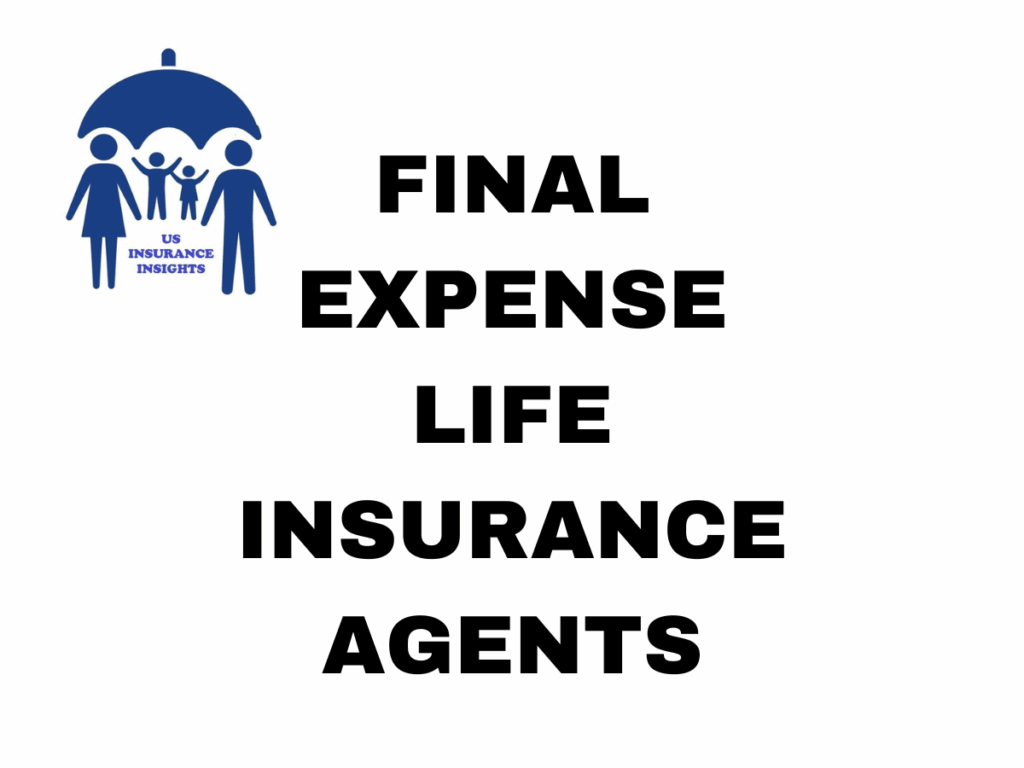Final expense life insurance agents help make sure families are prepared when they suffer the loss of a loved one. Since the price of funerals keeps going up, people want to make sure their finances are covered. So that’s why final expense life insurance agents are there, providing simple and economical options to families dealing with loss.
You will find clear instructions, useful tips and real experiences here, whether you are just beginning or want to improve your existing skills in real estate.
________________________________________
The focus of this section is final expense life insurance agents.
An agent for final expense policies helps customers get started with small whole life contracts of between $5,000 and $25,000 for funeral and other end-of-life charges. These include:
Having a funeral ceremony
• It is possible to be buried or cremated.
• Big amounts to pay for medical expenses
• Debts resulting from credit cards
• The expenses needed to comply with laws or regulations
Unlike most life insurance policies, final expense plans will not need a medical exam—just a simple health questionnaire. Most importantly, they bring families reassurance during difficult moments.
Learn additional information with Investopedia’s coverage on final expense insurance
________________________________________
The explanation for why Precancerous Agents are so sought after
A typical funeral in the U.S. will cost you between $7,000 and $12,000 at the very least. It is rare for people to have $100 lying around. Sometimes families keep savings, yet some of them do not want to spend that money on the funeral.
This is when final expense life insurance agents are essential. Although you are offering a policy, what you are really doing is providing peace, kindness and comfort during tough moments.
I will tell you another quick story.
Anecdote:
Due to an unexpected passing away, John in Ohio is now a widower. Since he didn’t have a life insurance policy, he had to find a way to cover her funeral costs. A local agent explained an affordable final expense policy for $15,000 to him. “I would have taken care of this earlier if I knew,” said John, “and I wouldn’t have needed to borrow or put off getting the service.”
A quick chat with a final expense life insurance agent turned John’s life around and this can happen to anyone they help.
________________________________________
Becoming a Final Expense Life Insurance Agent in Six Stages
We’ll show you the steps you need to take to be a successful agent.
Step 1 is to become licensed.
A life insurance license is required for anyone operating in the life insurance business in all states. The state insurance department posts all the information you need about car insurance on its website.
Step 2: Picking the Appropriate Transport Company
Find companies that mainly offer funeral insurance plans. For example, these include:
Mutual of Omaha
• Aetna
• Transamerica
Foresters Financial
Concentrate on carriers that have such benefits:
By using automated algorithms, underwriting happens rapidly.
• Generous opportunities to earn
STEP 3 Web portals that anyone can use.
You should receive training and have someone to assist you.
Most agents benefit from using insurance marketing organizations (IMOs) because they:
Training is free.
• Sales materials
Qualified leads or cold leads
• Programs that pair senior people with junior ones
Senior Market Sales stands out as a leading Independent Marketing Organization for both final expense and Medicare coverage.
STEP 4 in the next stage, begin finding potential customers.
You can follow these tips to look for new clients:
• Problems resolved face to face
• Mailing direct to people
Using Facebook for advertising
Providing or participating in events in the community
• Encouraging others to give you suggestions
Recall: Most of your customers will be senior adults, for whom you are creating final expense plans. Instead of aggressively promoting your business, try to earn trust and show them your benefits.
STEP 5 Don’t Stop Learning
Explore options on:
• NAIFA
Forums about insurance
• LIMRA
The more you learn, the more likely you are to gain confidence, appear credible and convert your leads.
________________________________________
The Regular Day for a Final Expense Life Insurance Agent
Typically, your day will consist of:
Contacting warm leads
• Traveling to clients and meeting them where they live
Reinforcing policies
• Getting new information and renewing when needed
Being a parent can be hard—but it is very meaningful.
Anecdote:
One time in Florida, Jessica met a woman who feared her children would have to help her for the rest of her life. Jessica got a handwritten thank-you letter a week after getting her client signed up for a $10,000 final expense policy. The note contained the words, “You brought me comfort I didn’t even realize I was missing.”
Agents are motivated by how they can change someone’s life through just one conversation.
________________________________________
Guide to Doing Well as a Final Expense Life Insurance Agent
It is important to build trust before starting to develop any relationship.
Listen to your customers before you sell anything. You may want to ask about:
- What are your problems with the cost of a funeral?
- Is there anything that you already use?
Be patient. Many older adults want to be listened to before they decide what to do.
Teach What You Know, Don’t Force It
Explain things in words people can easily understand.
• Your premium will never change.
• Health benefits always stay the same.
• Over time, policies start to increase their value
You can visit AARP’s guide for additional information.
Make sure you get back to them after they respond.
It’s common for a sale to happen after the person is contacted three or four times. Remember to send a card, give them a call and make sure you are not just selling all the time.
________________________________________
Important Tools You Should Use as a Final Expense Life Insurance Agent
To help yourself be well organized and work well, try:
Software programs such as Agency Bloc
• Organizations that automate finances (such as Crown Financial)
• DocuSign is an example of an e-signature tool
With technology, you can end more sales with less bother.
________________________________________
Conclusion: Why This Career Matters
A final expense life insurance agent does not see their job as only a means of earning income. It’s a calling that I feel I have. You support families during their toughest situations. You relieve them of money concerns that could make grief even harder.
If you’re interested in people, realize the importance of listening well and are confident you can help, this might be the best career for you.
________________________________________
Frequently asked questions
Approximately how much do final expense agents receive in commission?
Depending on the provider and agreement, most agents earn between 100% and 120% of their first year’s premium.
How big of an earning potential does a final expense agent have in one year?
An agent’s volume and strategy can help them earn $50,000 to $150,000 or more annually.
Is having experience necessary before you begin?
No. Agencies are usually happy to offer training, so you can begin even if you are new to sales.
NICE INFORMATION


https://shorturl.fm/fSv4z